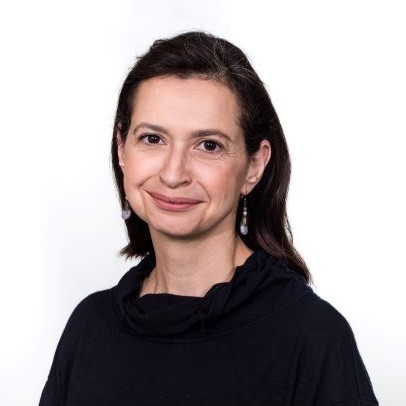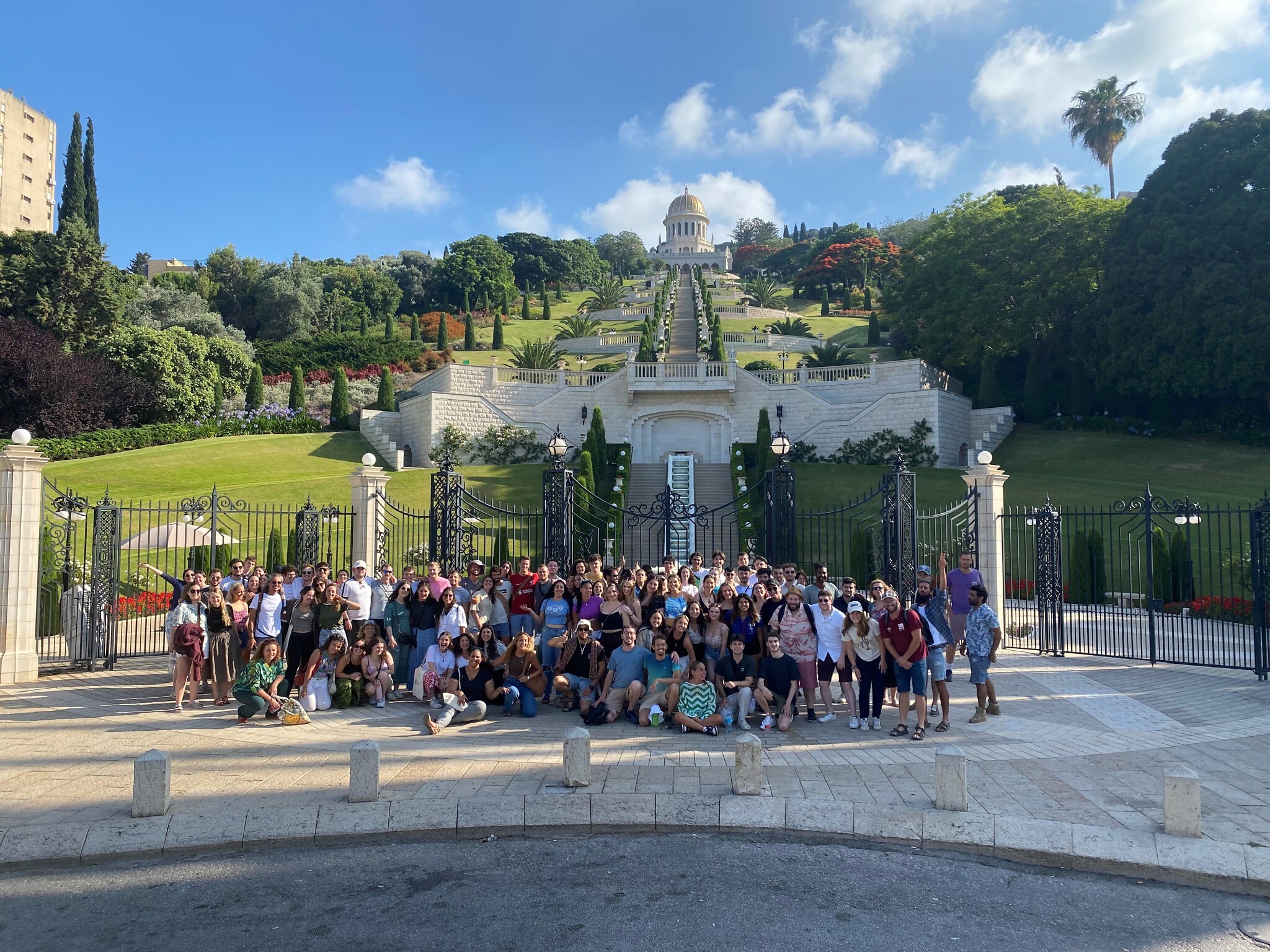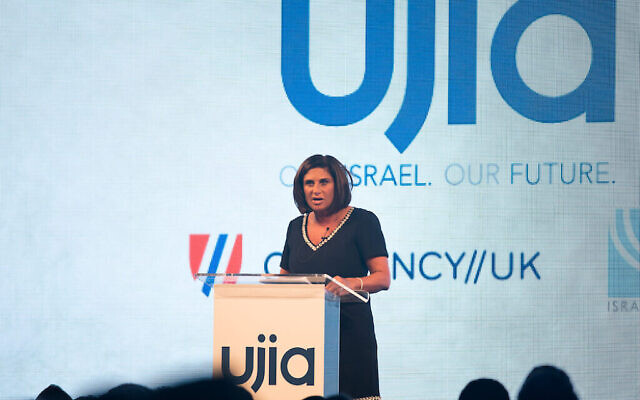What’s next for the UK’s biggest Israel charity?
Amid restructuring, re-assessment and redundancies, chief executive Mandie Winston and chair Louise Jacobs chart a new course for the future
Jenni Frazer is a freelance journalist
Britain’s biggest Israel-supporting charity, UJIA, has launched a change of strategy in a re-assessment of its key priorities.
More focus will be on the domestic side of its work rather than on capital projects in Israel — and in Israel, there will be “a new way of philanthropy”, in which UJIA will support groups bidding for social improvement loans for different communities.
But along with the good news and positive vibes for the charity’s future in changing times, chair Louise Jacobs and chief executive Mandie Winston have had to face a drop in income — and seven staff members have been made redundant. Part of that, the pair say, is because the re-structuring has meant certain roles were no longer required.
“We need to use every single pound that we have for the benefit of the mission,” says Winston, “we’re not sitting on a building, and we need to use our money as wisely as we can. And that has meant sometimes painful decisions”.
Over time, says Jacobs, “I would hope we would be able to re-hire — but it would be for different positions”. Jacobs and Winston form what is surely a unique double act in Anglo-Jewry, two women fronting a major charity in both lay and official roles.
It is a far cry from the male-dominated “boys’ club” of previous UJIA incarnations — but the two women bring a strong sense of pragmatism and a non-confrontational, business-like approach to their vision for the charity.
Their starting point, says Jacobs, “is to spend more money in the UK, because our primary mission is to ensure that our young people have a strong connection with Israel through programmes that we can provide for them. Those families that can’t afford to send their kids — we want to be able to help them, and that number is growing.”
Deepening young people’s links with Israel, the two women believe, is a core part of strengthening their Jewish identity. Ultimately, they say, this work will form the basis for finding the communal leaders of the future. So there will be new emphasis on working with people in their 20s and 30s, some of whom are now helping to assess bids from would-be projects under the UJIA Si3 umbrella.
Si3 stands for Social Impact Investment in Israel, which funds projects that provide high-value social impact. One such project — which has hugely impressed UK Jewish visitors from the Israel Tour or long-term Israel education groups — is a chocolate-making factory outside Netanya, run by Charedi boys.
Si3 projects get loans from UJIA and then repay them over an agreed period — and once the money is repaid it is then recycled into a new set of schemes. Winston says that American groups have taken note of UJIA’s success in this field and are looking closely at replicating the model.
To date there are 23 separate investments and a total of £2 million invested in Si3, which UJIA expects to grow in the coming years. Contrary to what might be assumed, not all the young people who go on Israel Tour programmes attend Jewish schools. Jacobs says the participants are divided fairly evenly at 50 per cent in Jewish and 50 per cent in non-Jewish schools, making it even more important for UJIA to strengthen teenage and upward Jewish identity.

People who apply to join Birthright programmes — also run by UJIA — are very often from places with tiny or no Jewish community at all — “outside the north-west London bubble”. Like every other charity UJIA was adversely affected by the pandemic. “Israel Tour has become a rite of passage for 16-year-olds and the numbers [after Covid] are still good and keep going up”, says Jacobs. “I think not doing it made us realise how important it was. The community was weaker for it and the knock-on effect, in terms of madrichim [youth leaders], was greater than we could have anticipated”.
Numbers are up, says Winston, in the long-term programmes (not called gap year any more because students often take time out during their university years, or even after their degrees), and more training has been required for people who missed out during Covid. Both Winston and Jacobs are aware of “increasing polarisation” in the community as a direct result of the political turmoil in Israel. Their approach is not to ignore the issue — “but to continue to hold the broad tent. Our work transcends any particular government. It’s tough — but our donors are aware of what we do, and we need to double down and get on with it.”
Accordingly, they say, UJIA’s policy will to be offer information, help and support to youth movements across the spectrum. The consensus is that every group “needs to visit the Kotel” — but that those groups who choose, for educational reasons, to cross the Green Line [the 1967 border between Israel and the West Bank] are able to do so.

If the new, re-energised UJIA has a slogan it might be “active inclusion” — embracing Jewish diversity but working hard to include as many people as possible from across the community.
“We don’t dictate to people, but we offer them opportunities, and a credible range of opinions”. “Our primary message”, says Winston, “is that every Jewish person should have a strong sense of belonging to the Jewish people. We are trying to inspire young Jews to forge their own personal relationship with Israel, to know that there is something which connects us.
“For too long, I think that people thought that communal leadership meant you had to be a certain sort of Jew. It’s not true. We need everybody.”

Thank you for helping to make Jewish News the leading source of news and opinion for the UK Jewish community. Today we're asking for your invaluable help to continue putting our community first in everything we do.
For as little as £5 a month you can help sustain the vital work we do in celebrating and standing up for Jewish life in Britain.
Jewish News holds our community together and keeps us connected. Like a synagogue, it’s where people turn to feel part of something bigger. It also proudly shows the rest of Britain the vibrancy and rich culture of modern Jewish life.
You can make a quick and easy one-off or monthly contribution of £5, £10, £20 or any other sum you’re comfortable with.
100% of your donation will help us continue celebrating our community, in all its dynamic diversity...
Engaging
Being a community platform means so much more than producing a newspaper and website. One of our proudest roles is media partnering with our invaluable charities to amplify the outstanding work they do to help us all.
Celebrating
There’s no shortage of oys in the world but Jewish News takes every opportunity to celebrate the joys too, through projects like Night of Heroes, 40 Under 40 and other compelling countdowns that make the community kvell with pride.
Pioneering
In the first collaboration between media outlets from different faiths, Jewish News worked with British Muslim TV and Church Times to produce a list of young activists leading the way on interfaith understanding.
Campaigning
Royal Mail issued a stamp honouring Holocaust hero Sir Nicholas Winton after a Jewish News campaign attracted more than 100,000 backers. Jewish Newsalso produces special editions of the paper highlighting pressing issues including mental health and Holocaust remembrance.
Easy access
In an age when news is readily accessible, Jewish News provides high-quality content free online and offline, removing any financial barriers to connecting people.
Voice of our community to wider society
The Jewish News team regularly appears on TV, radio and on the pages of the national press to comment on stories about the Jewish community. Easy access to the paper on the streets of London also means Jewish News provides an invaluable window into the community for the country at large.
We hope you agree all this is worth preserving.






















